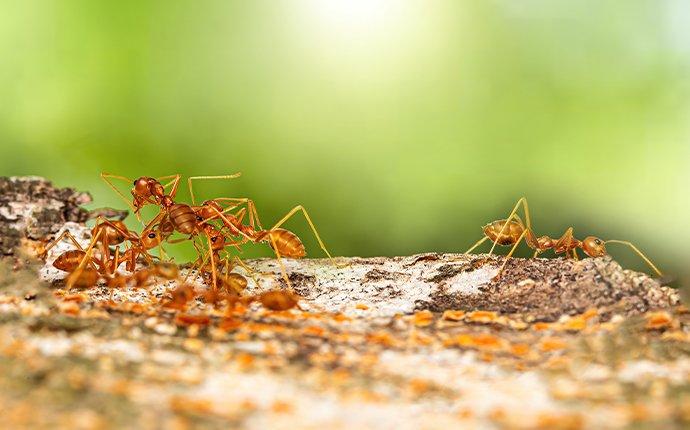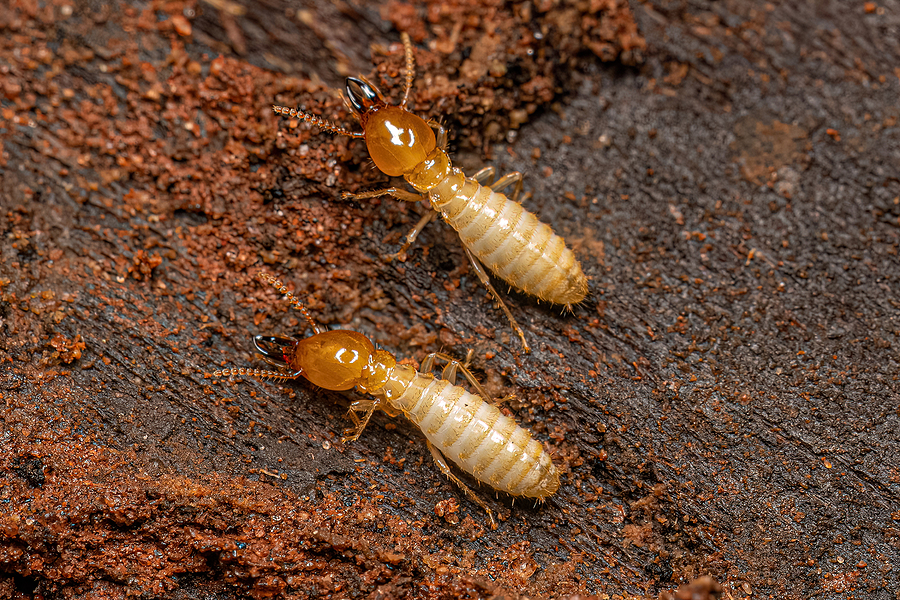Expert Termite Control Services: Secure Your Home from Termite Damages
Expert Termite Control Services: Secure Your Home from Termite Damages
Blog Article
Ecological Impact of Pest Control: Balancing Performance With Sustainability
The ecological effect of pest control is an important concern that needs a delicate equilibrium between attaining performance in ensuring and taking care of bugs sustainability of our ecological communities. As we aim to safeguard our plants, homes, and health and wellness from the threats postured by bugs, the methods we use can unintentionally damage the atmosphere. From making use of harmful chemicals that leak into our dirt and water to the unintended consequences on non-target types, the effects of conventional insect control practices are significant. However, there are arising strategies that use hope for a much more sustainable strategy to pest management. These options not just objective to resolve the instant parasite problems but likewise take into consideration the long-lasting wellness of our planet.
Damaging Chemicals in Bug Control
The application of unsafe chemicals in parasite control positions considerable ecological and health and wellness threats that call for cautious factor to consider and reduction approaches. Herbicides, chemicals, and pesticides are generally made use of to get rid of parasites, but their extensive application can result in unintentional consequences. These chemicals can contaminate dirt, water sources, and the air, influencing not just the targeted bugs however also advantageous pests, wild animals, and people.

To attend to these risks, incorporated pest management (IPM) strategies are being advertised as an extra sustainable alternative. IPM entails a mix of approaches such as organic control, habitat control, and the targeted use of chemicals as a last resource (ant control salisbury nc). By adopting a holistic approach to pest control, we can minimize the ecological and health and wellness impacts connected with harmful chemicals while effectively taking care of pest populaces
Effect On Non-Target Variety
Thinking about the unintentional repercussions of pest control approaches, the impact on non-target species is an essential element that calls for thorough evaluation. While bug control steps intend to target particular parasites, various other organisms in the environment may be accidentally affected. Non-target varieties, consisting of advantageous pests, birds, mammals, and also plants, can suffer straight or indirect damage from chemical applications or biological control techniques.
Pesticides designed to deal with a particular insect bug may hurt pollinators like bees or all-natural predators such as ladybugs. Biological control agents, if not species-specific, can position dangers to unexpected targets, interrupting the eco-friendly equilibrium.
To minimize the influence on non-target varieties, incorporated parasite monitoring (IPM) approaches that stress an all natural strategy to pest control are advised. These approaches prioritize using eco-friendly practices, minimizing injury to advantageous microorganisms while effectively managing pest populaces. Carrying out complete danger analyses and keeping track of the end results of parasite control initiatives are necessary steps in protecting non-target species and promoting total environment health and wellness.
Soil and Water Contamination
Unintended environmental consequences of pest control approaches prolong beyond influencing non-target types, with substantial effects for soil and water contamination. Pesticides, herbicides, and chemical plant foods used in parasite control can seep into the dirt and contaminate groundwater, presenting a danger to both terrestrial and marine ecosystems. Dirt contamination can disrupt the equilibrium of microorganisms vital for nutrition biking and plant growth, bring about reduced dirt fertility and efficiency. Additionally, these chemicals can persist in the atmosphere for extensive periods, accumulating in the soil and possibly entering the food web.
Water contamination is an additional crucial problem linked with insect control methods. Overflow from farming areas treated with chemicals can lug these chemicals into close-by water bodies, impacting marine microorganisms and water top quality. Impurities in water resources can have far-ranging consequences, affecting not only water life however likewise human health with the usage of polluted water or water microorganisms. To alleviate dirt and water contamination from parasite control tasks, incorporated parasite monitoring approaches that focus on sustainability and decrease chemical inputs are essential.
Air Pollution From Chemical Usage
Exposure to air-borne chemicals during agricultural applications postures a substantial worry for air pollution control actions. They can volatilize into the air and kind unstable organic substances (VOCs) and other airborne pollutants when pesticides are sprayed onto plants - ant control services. These chemicals can contribute to the formation of ground-level ozone, a significant component of smoke that can have damaging impacts on human health and wellness, plant performance, and total air high quality. In addition, pesticide drift, where chemicals are brought by the wind to unintended areas, can bring about the contamination of close-by ecosystems and water bodies.

Approaches for Sustainable Insect Control
In the world of agricultural methods, applying lasting pest control techniques is vital for keeping eco-friendly balance and guarding crop yields. Sustainable insect control highlights using eco-friendly approaches to take care of parasite populaces effectively while reducing harm to non-target organisms and ecological communities. Integrated Insect Management (IPM) is a widely adopted method that integrates biological, cultural, physical, and chemical control techniques to accomplish long-lasting bug administration options.
Crop turning and diversification are additionally effective techniques to disrupt pest life cycles and create much less beneficial problems for insects to thrive. Inevitably, by integrating these sustainable pest control methods, farmers can achieve an equilibrium between pest monitoring effectiveness and ecological stewardship.
Final Thought
In conclusion, the ecological impact of bug control ant control durham nc methods need to be very carefully considered to balance performance with sustainability. Damaging chemicals made use of in insect control can cause dirt and water contamination, air contamination, and harm non-target species - termite control services. It is essential to carry out lasting pest control methods to reduce these adverse effects on the atmosphere and advertise a much healthier ecosystem for future generations
By adopting an alternative strategy to pest control, we can lessen the ecological and wellness influences associated with damaging chemicals while successfully taking care of pest populaces.

To alleviate the air contamination triggered by chemical use, it is essential to embrace incorporated insect monitoring methods that focus on the use of non-chemical bug control approaches, such as crop turning, natural predators, and immune plant ranges. Sustainable bug control emphasizes the use of eco friendly techniques to take care of pest populations efficiently while minimizing damage to non-target microorganisms and ecosystems. Integrated Bug Monitoring (IPM) is a widely embraced strategy that combines biological, cultural, physical, and chemical control methods to attain long-term bug monitoring solutions.
Report this page